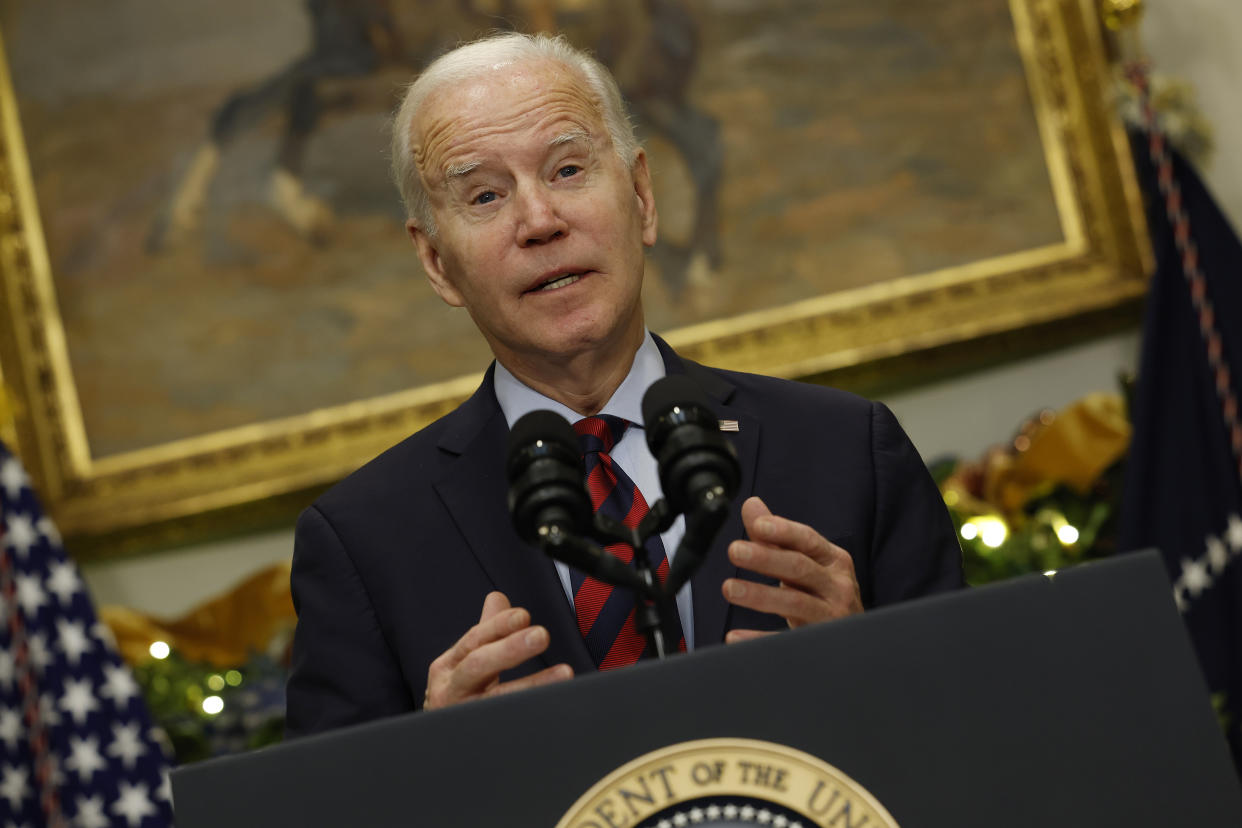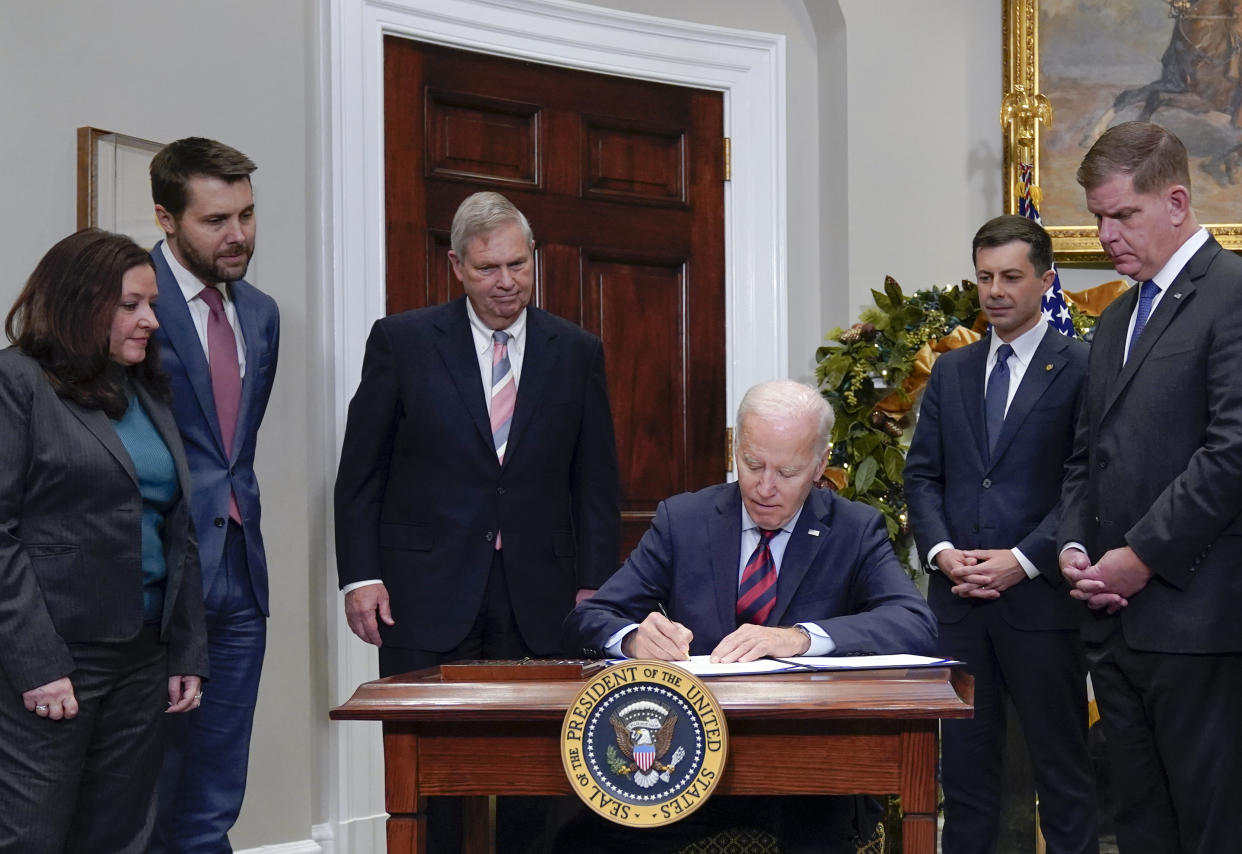President Biden signs bill preventing rail unions from striking
WASHINGTON — Celebrating the end of what he described as a “difficult rail dispute” that, if it persisted, “would have been an economic catastrophe at a very bad time in the calendar,” President Biden signed a bill Friday that prevents a dozen rail unions from striking, making them adopt a contract they had tentatively agreed to earlier this fall.
A strike would have caused shortages and disruptions while also likely worsening inflation. Having battled those forces for much of his administration, Biden seemed desperate to avoid another harmful shock to the nation’s economy.
But doing so would require the president, a longtime ally of organized labor, to intervene in a union dispute. Ultimately, he and his economic advisers concluded that doing so was simply necessary. They asked Congress to pass a bill to avert the strike on Monday; both chambers ratified the measure quickly, and with bipartisan support.

As the president was entertaining French President Emmanuel Macron, who has been in Washington for a state visit, the rail strike bill was heading to Biden’s desk. Even as he signed the bill, he acknowledged the political discomfort it caused.
“I know this was a tough vote for members of both parties. It was tough for me. But it was the right thing to do at the moment,” Biden said in his Friday morning remarks. He pointed out that the new contract includes a 24% raise for rail workers, as well as a mechanism to lower health care costs.
But it does not include the seven days of paid sick leave some unions wanted; instead, the new contract offers rail employees a single personal day.
Friday also saw the Labor Department release November figures, with 263,000 jobs gained throughout the month. A strike would imperil those gains; Biden said on Friday that 765,000 jobs would be lost in the first two weeks of a strike, according to estimates by administration economists.
Negotiations could have lasted until the Dec. 9 deadline, which could have also been extended, but there was little desire to wait because of a deadlock over sick days. And with Republicans set to take over the House of Representatives in just weeks, it was unlikely that delay would result in a better deal.

“There was acknowledgment from all parties involved that they were not making progress,” an administration official told Politico.
A tentative deal had been brokered between rail unions in mid-September, with Transportation Secretary Pete Buttigieg and Labor Secretary Marty Walsh doing the brunt of the work for the Biden administration, and with Biden himself becoming involved as a deal appeared to be nearing.
But in the ensuing weeks, the issue of paid sick days remained unresolved, raising the threat of a strike once again. Several of the unions wanted seven days of paid leave, but the railroad owners refused, setting up a seemingly unresolvable impasse.
“If we can’t improve the agreement by getting some sort of sick leave, I think Congress is going to have to intervene because I think the railroads are just too stubborn to give us what we want unless we are able to strike,” one union leader said in November, as the possibility of a strike became real again.
Biden acknowledged that bitter feelings remained over the intervention by Congress. He vowed to enact a sick day policy “not just for rail workers but for all workers.”


